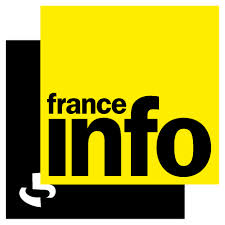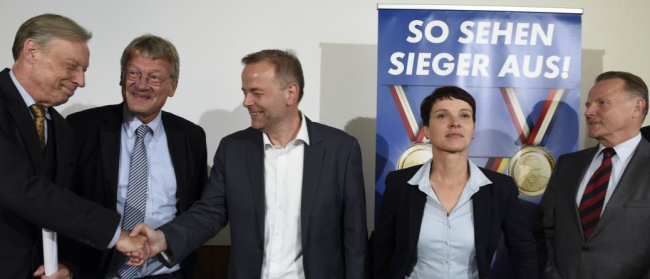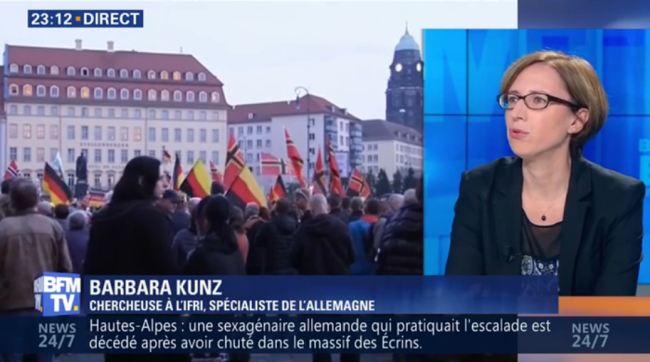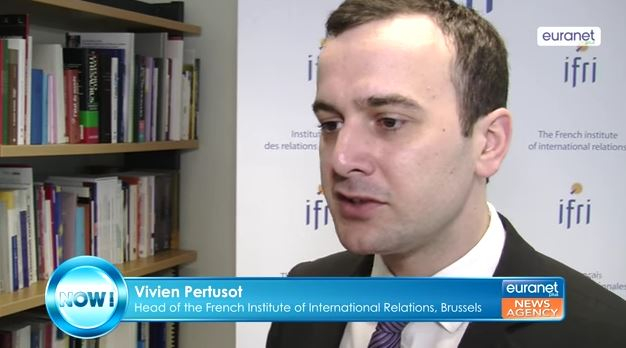Europe
Europe is described here in a geographical sense. It is not limited to the European Union, and includes, for example, the United Kingdom and the Balkans. It remains central to international relations.
Related Subjects

Opening up the G7 to South Korea to Address Contemporary Global Challenges

The G7’s global influence has diminished as powers like China reshape international governance through initiatives such as BRICS and the Shanghai Cooperation Organisation (SCO). With the G7 now representing just 10 per cent of the world’s population and 28 per cent of global GDP, its relevance is increasingly questioned.
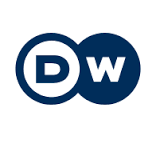

Juncker, the optimist
The president of the European Commission about security, investment and assistance in Africa. According to Hans Stark, Jean-Claude Juncker didn't beat around the bush and instead of going too far in self-chastisement he tried to give hope to European citizens.


Tillykke, tillykke, tillykke: Europas nationalister jubler over »lussing« til Merkel
"Congratulations, Congratulations, Congratulations : Europe's nationalists welcome the "slap" for Merkel.
German elections: the AfD becomes “increasingly nationalist and right-wing populist”
On Sunday Angela Merkel experienced yet another electoral setback in the regional elections. In Mecklenburg-Western Pomerania, the chancellor’s conservative party was overtaken by the AfD.
German elections: Angela Merkel's party beaten by populists (2/2)
The Chancelor's party listed third behind the new populist party AfD in the North East of Germany.


What's next for Europe after Brexit?
Vivien Pertusot was interviewed after the vote in United Kingdom in June on what the consequences of Brexit are for the future of the European Union.


French business to gain from Brexit, but Frexit menaces
Vivien Pertusot, of the international relations think tank Ifri, said the Franco-British political relationship had never been defined by the European Union but is based on bilateral interests.


A week that will define Europe
In a few days’ time, the populist conservative Boris Johnson may well be on his way to becoming British prime minister. And the radical left Podemos movement could be close to the reins of power in Spain. There is the question of what role the current EU institutions — the Commission and the Parliament — might play in a new climate infused with Euro-wariness. “There’s a realization that Europe has changed much faster than its conservative, slow-moving institutional bodies,” said Vivien Pertusot.
Read the article.
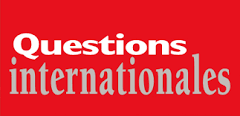

Mapping EU-China relations from the bottom up
Mapping Europe-China Relations: A bottom-up approach -- a recent report of the European Think-tank Network on China (ETNC) to which Alice Ekman and John Seaman largely contributed -- was summarized in Politico's Pro Morning Trade newsletter.
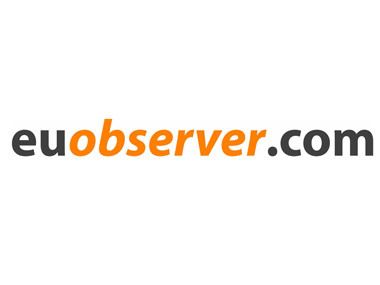

Nervous France opens Euro 2016 games
In Europe, "Hollande is considered as domestically weak, he's not considered as a leader who can revolutionise France," Vivien Pertusot, the head of the French think-tank Ifri's Brussels office, told EUobserver.
After UK: Who's next curbing social benefits?
Vivien Pertusot appears in a news report by Euranet Plus looking at the section on social benefits from the deal found between the United Kingdom and the European Union.
Support independent French research
Ifri, a foundation recognized as being of public utility, relies largely on private donors – companies and individuals – to guarantee its sustainability and intellectual independence. Through their funding, donors help maintain the Institute's position among the world's leading think tanks. By benefiting from an internationally recognized network and expertise, donors refine their understanding of geopolitical risk and its consequences on global politics and the economy. In 2025, Ifri supports more than 80 French and foreign companies and organizations.







